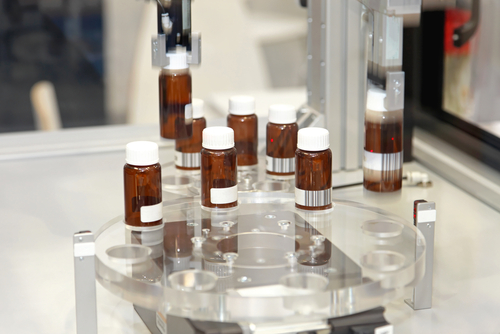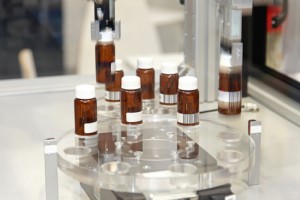Mylan’s Generic Copaxone Injection ANDA Approved for Filling by the FDA
Written by |

 The U.S. Food and Drug Administration (FDA) accepted the abbreviated new drug application (ANDA) for filing of a Glatiramer Acetate Injection for the treatment of patients with relapsing forms of multiple sclerosis (MS). The injection, which is a 40 mg/mL, three times per week treatment, is produced by the pharmaceutical company Mylan and is the generic version of Teva’s Copaxone 40 mg/mL.
The U.S. Food and Drug Administration (FDA) accepted the abbreviated new drug application (ANDA) for filing of a Glatiramer Acetate Injection for the treatment of patients with relapsing forms of multiple sclerosis (MS). The injection, which is a 40 mg/mL, three times per week treatment, is produced by the pharmaceutical company Mylan and is the generic version of Teva’s Copaxone 40 mg/mL.
Glatiramer Acetate Injection is an immunomodulator drug, which is a compound of a polymer of four amino acids derived from myelin protein that works by trapping the immune system. It is administrated as subcutaneous injections and indicated for the reduction of the frequency of relapses. However, there are no controlled clinical trials that verified its effects on the reduction of the progression of the disability caused by multiple sclerosis.
“Mylan Inc has filed an abbreviated new drug application for a three times a week generic Copaxone and has been accepted by the United States Food and Drug administration,” said Mylan’s marketing partner, Natco Pharma, in a press statement. “Mylan believes it is one of the first companies to have filed a substantially complete ANDA containing a Paragraph IV certification for this product and expects to be eligible for 180 days of market exclusivity in the US upon final FDA approval.”
[adrotate group=”4″]
Copaxone 40 mg/mL registered sales of approximately $411.5 million in the United States, during the 12 months ending on June 30, 2014, as recorded by consulting firm IMS Health. Mylan, on the other hand, could increase their annual brand sales by $105.7 billion if all of their 294 ANDA pending FDA requests are approved, according to the same consulting company. Forty-three of the pending ANDAs that Mylan has submitted are potential first-to-file opportunities, and represent $25.0 billion in annual brand sales, for the 12 months ending Dec. 31, 2013.


